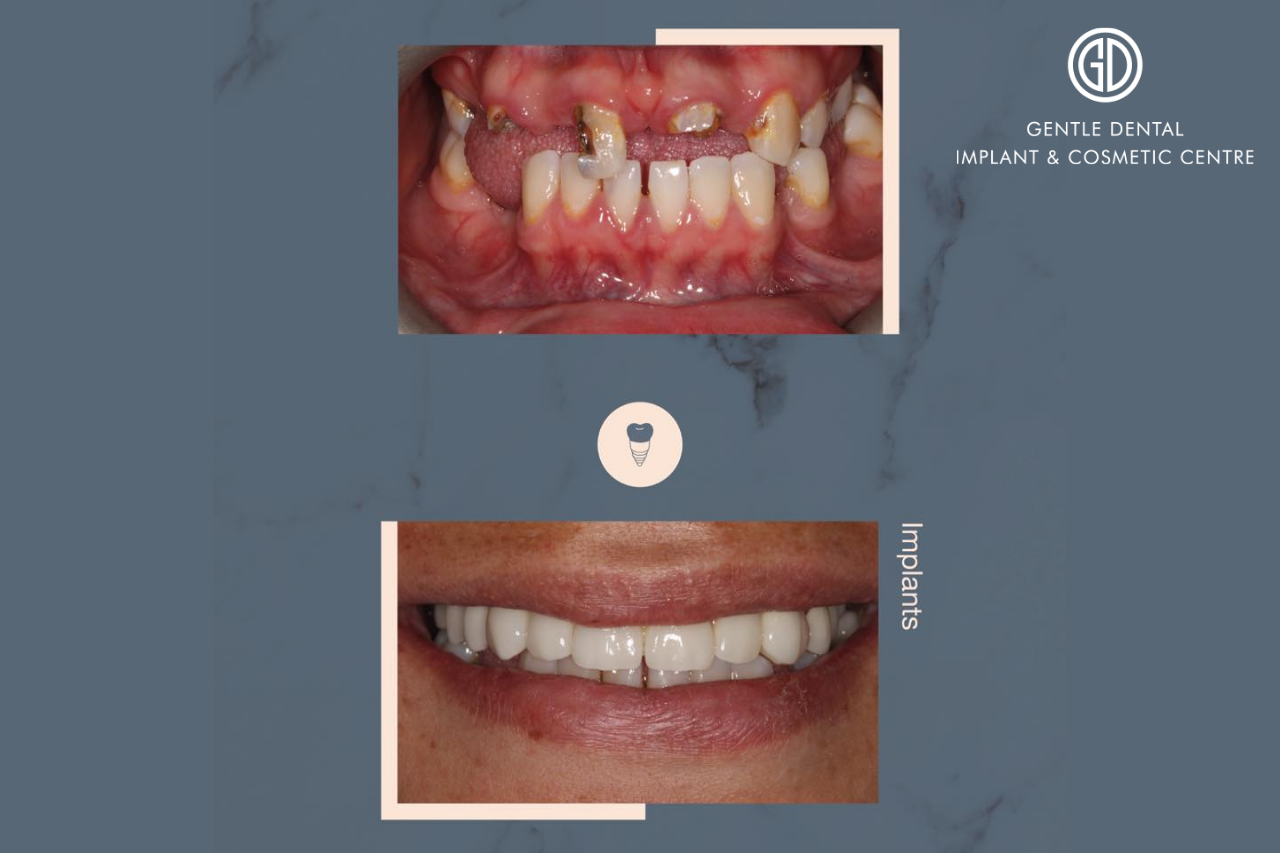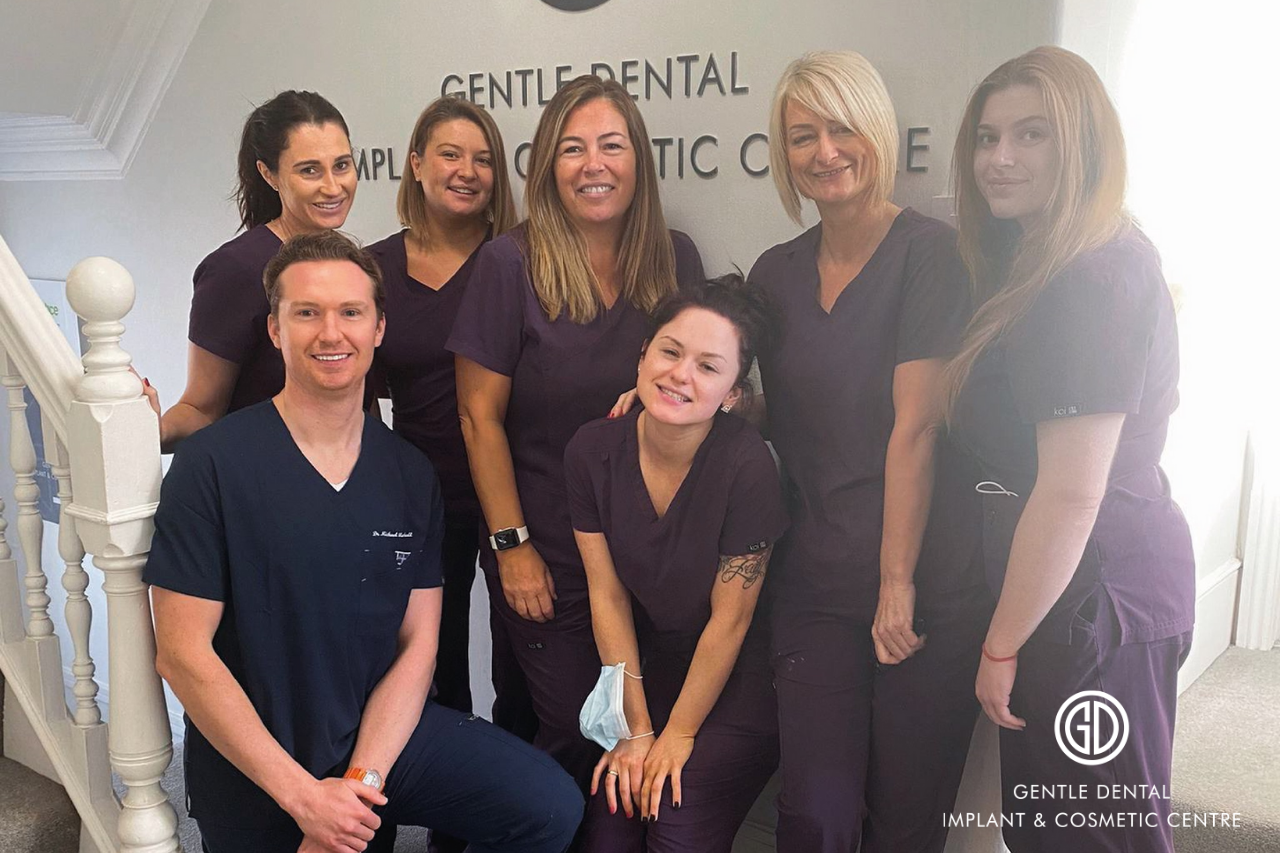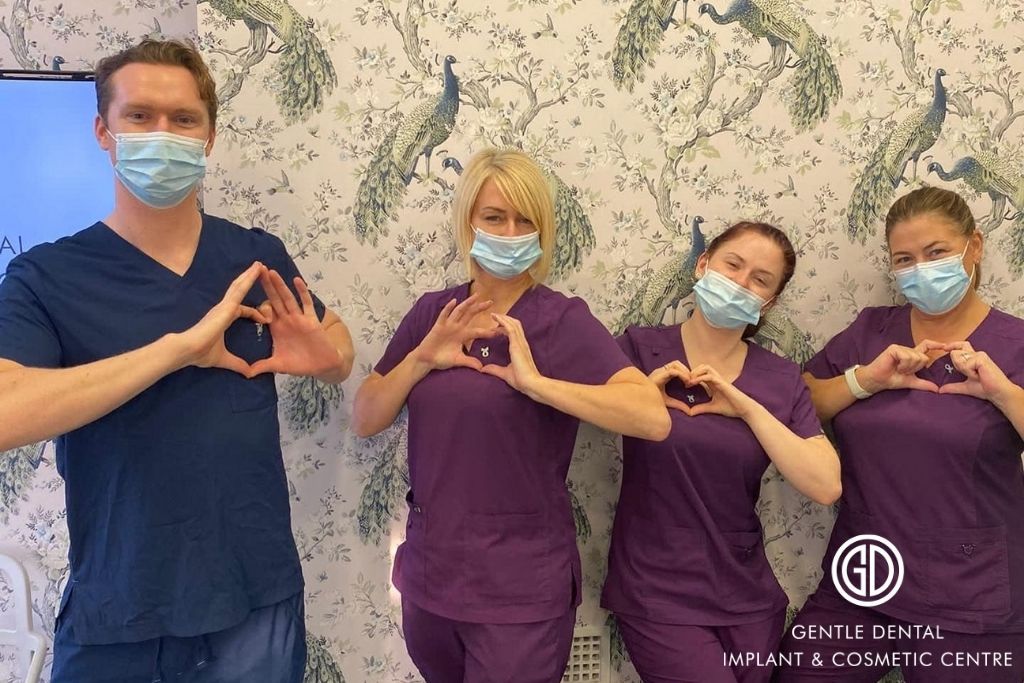When it comes to addressing missing teeth, there are two main options: dentures and dental implants.
Dentures vs Implants
Dentures can seem like the easier choice from the outside, but they often come with several drawbacks.
Dentures are only a temporary solution to the problem of missing teeth; as the mouth changes shape over time, dentures slowly lose their natural fit and become uncomfortable and loose.
Unsure of which to go for? Let’s start by identifying which will be best for your oral condition.

The downside to dentures
Dentures also fail to address the weakening of the jawbone that occurs when teeth are missing.
Over time, this looseness makes dentures more likely to fall out, which will eventually require replacing.
Dr Ali Rifai is an implant dentist who has successfully placed implants for several years.
When asked which is better, he commented, ‘ dental implants are certainly a stronger and more durable solution for missing teeth, especially where multiple tooth loss is concerned’.
Are implants better?
Dental implants resolve these problems whilst also being incredibly long-lasting, easy to maintain and undetectable.
One of the significant advantages of dental implants is that, once the healing process is complete, most patients can treat them just like regular teeth, eliminating the need for adhesive, removal or special cleaning.
Treat your implants well, and they could last a lifetime.

Quick contact

What is the cost of dentures vs implants?
When comparing dental implants and dentures, dentures are significantly less expensive.
Whilst dentures are cheaper, in the long-term, upkeep is generally overlooked; from cleaning solutions and adhesives to repair and all-out replacement, dentures become more and more costly over time.
Dental implants require very little upkeep outside of standard dental care. This makes the cost of implants far more representative than that of dentures.
In the long term, dental implants are more practical and possibly less expensive.
Instant implants
With implants, a screw is placed into the jawbone, creating a sturdy and durable bond. However, this procedure requires a strong and healthy jawbone to attach to and can be a little invasive for some.
All-on-Four implants solve this as they require no bone grafts or regeneration.
This means the healing time is reduced, and you can leave our implant clinic with new teeth after just one appointment – making them a more popular and affordable solution.


Can a dental implant fail?
Even though our success rate for implantation is 98.2%, there are many reasons why a dental implant might fail. The most common of these are unhealthy gums.
Usually, a dentist will not operate on a severe gum disease patient known as periodontal disease. This is because the implant requires a firm foundation within the jawbone and a healthy gum line to bond correctly.
Some patients may have healthy gums but still not qualify for the procedure due to an insufficient jawbone size.
Without this, the implant will not have enough space to secure itself, leading to failure later. Smoking is universally damaging to a person’s health, and gums are no different.
Smoking restricts the blood flowing to the gums and can cause them to recede.
Whilst smoking does not guarantee you will be denied treatment, it increases this likelihood and significantly slows down the recovery and healing process.
However, no two mouths are the same, so it is always worth booking a consultation with us to determine if dental implants are right for you.

Get an interest-free loan in under 5 minutes
It only takes 2 minutes to apply and you’ll get an answer immediately – applying for a loan has never been easier.
0% finance is available for many treatments up to £30,000. Credit decisions will be subject to individual circumstances. You must be over 18 and earn an income to apply.
Single Implants
Often used in simple cases where one tooth has been lost by accident or trauma. More.
Multiple Implants
Used in cases of multiple tooth loss in different locations in the mouth, where teeth are not missing in a row. More.
All-on-Four
Perfect for full mouth reconstructions, where patients have experienced tooth loss on the upper and lower jaws. More.














